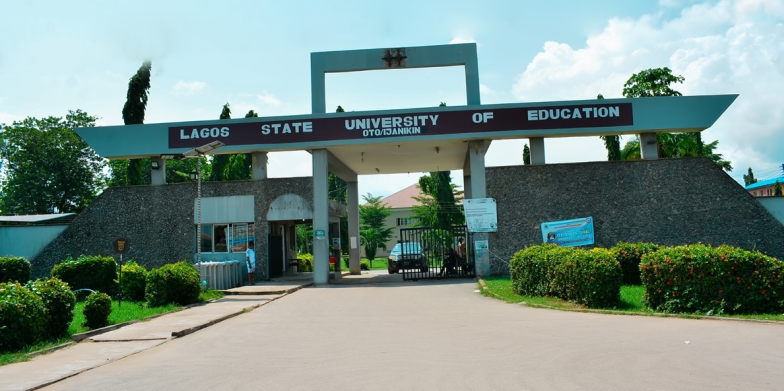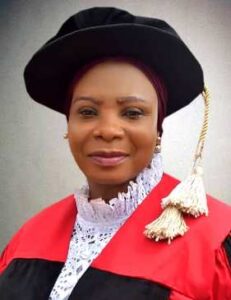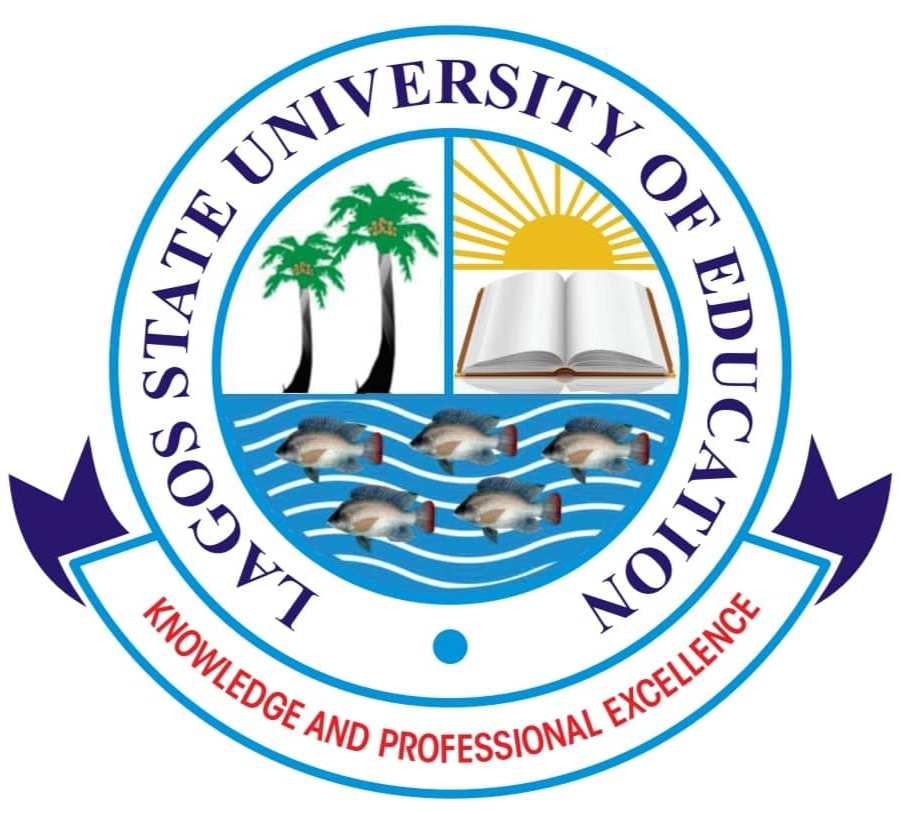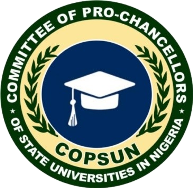Lagos State University of Education


Pro-Chancellor/Chairman of Council
LASUED is situated in Lagos and it is of dual campus. It is a university coming out from the merger of two erstwhile colleges of education owned by the Lagos State Government.
Even though by age and activities one is older and bigger than the other, but it will make for a more peaceful coexistence not to make one subordinate to the other. Hence, we have two campuses that retained the old names of the colleges, namely:
- Adeniran Ogunsanya Campus, Oto/Ijanikin.
- Michael Otedola Campus, Noforija, Epe.
- To provide courses of instruction leading to National Certificate in Education (NCE) and other distinctions in education and such related studies as may be prescribed;
- To provide special training courses in education or related subjects whether leading to college distinction or not, for such persons as may be prescribed, taking into account at all times the requirements of both the Federal and State Ministry of Education;
- To provide an adequate supply of well-qualified non-graduate teachers in accordance with the requirements of both the Federal and State Ministry of Education;
- To conduct research with particular reference to research in the field of Education;
- To arrange conferences, seminars, courses, study groups and like activities for the purpose of improving instructions and learning in the Lagos State Schools system;
- To develop and propagate a professional code and inculcate in its students the ethics of the education profession; and
- To perform such other functions as may be conferred on it by Statute.
The implication of these objectives is that the College is expected to do more than just produce teachers for the school system. For the purposes just mentioned, the College since its inception in 1973 was housed in a very small area at Onitolo in the heart of Surulere, Lagos. In response to the problem of grossly inadequate land space in relation to the demands for the development of modern infrastructural facilities and increasing population of students at its Surulere site, the State Government, in 1981, moved the College to the more spacious permanent site at Oto/Ijanikin, Kilometer 30 Lagos Badagry Expressway. In 1980, a College Masterplan was approved and construction work on the site for the first phase of the new structural development commenced. The foundation stone for construction was laid on 29th July, 1986 by the then Governor of Lagos State, Group Captain Gbolahan Mudashiru. A remarkable turning point in the history of the College was when the Military Administrator of Lagos State, Colonel Mohammed Buba Marwa, officially renamed the College after late Otunba Adeniran Ogunsanya, an illustrious son of the state who contributed immensely to the provision of quality education in Lagos State. The College became known as Adeniran Ogunsanya College of Education (AOCOED), Oto/Ijanikin, Lagos State in 1996. The College currently serves as an affiliate College of the Ekiti State University, Ado Ekiti, by awarding first degrees in programmes in Education. Precisely in 1999, a Memorandum of Understanding (MOU) was signed between the College and the then Ondo State University, Ado-Ekiti, now Ekiti State University, Ado-Ekiti after an approval by the University Senate. This MOU, which has since been reviewed and approved prescribes certain roles for both the University and the College for easy operation of the programmes. The programmes were appraised and approved by the National Universities Commission (NUC) in 2009 and the College has succeeded in running the Full Time Undergraduate programmes in Education courses in affiliation with the Ekiti State University, Ado – Ekiti for close to ten years.
- Total Enrollment : 3,219
- Undergraduate/Graduate ratio : N/A
- No. of International Students : N/A
- No. of Faculties : 7
- Student Faculty ratio : Nil
- No. of Staff : 1,644
Courses/Programs
| Serial# | Title | Estimated Cost | Program type |
|---|
Campuses
Reviews
Average rating
0.0 / 5
Rating breakdown
Submit your review

- Location
Oto/Ijanikin with a Campus @ NoforijaEpe Click address for directions
- Phone 09155588501
- Fax
- Email info@lasued.edu.ng
- Web Site https://lasued.edu.ng/

